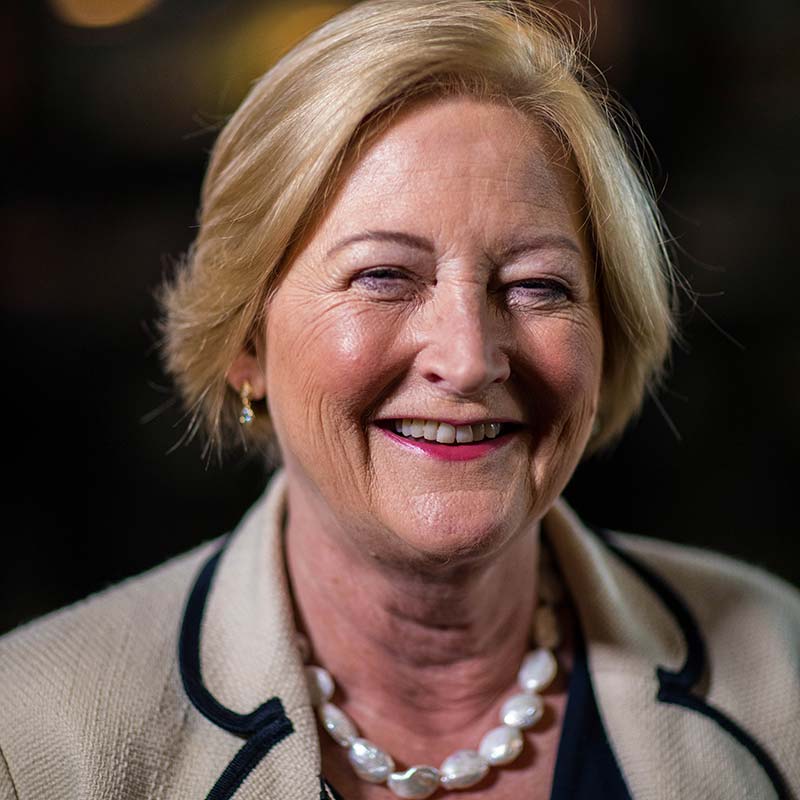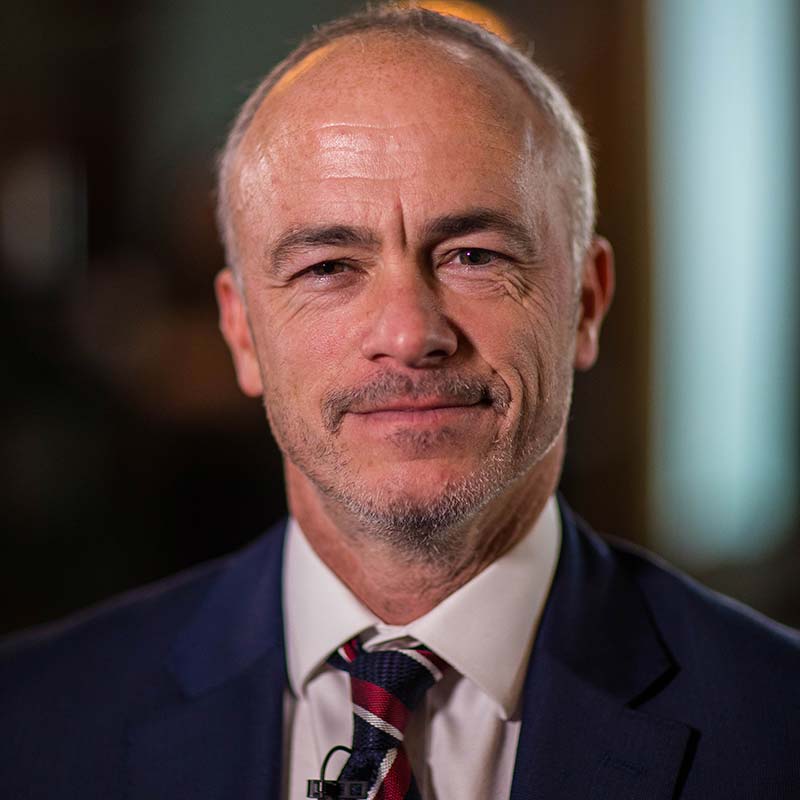What does retiring mean in 2020?
‘It’s that mental hurdle, moving from accumulation to decumulation and getting people to accept that they can afford to spend money’
Carolyn Gowen, Bloomsbury Wealth
Retirement isn’t the same as it was 20 years ago. It has changed the way people invest and reestablished the focus on what they can control.
There are a number of misconceptions surrounding retirement and what it means for someone’s life, advisers have said. Speaking at a panel discussion sponsored by Invesco Asset Management Limited, financial planners pointed out at how their clients face the reality of retirement and what it needs to be done to make the transition to this new life phase smoother.
Paula Steele, managing partner at John Lamb, explained that the fear of running out of money is a common misconception among clients. ‘A lot of people think they’re going to stop having a pay cheque coming in and they’re not going to have enough money and they don’t really believe, when you say to them, that they will have enough money. That’s the biggest issue for clients.’
Jarrod Ellis, director at Delta Financial Management, said preparation is key to face a different way to cover someone’s expenses and liabilities.
‘We try and educate the client that their relationship with money will be different because when you work, whether you have your money in an ISA or pension, it doesn’t actually matter because the employment pays the bills.
‘When you retire, your assets start to pay the bills. When they actually retire, they do have to pay attention.’
This point is pivotal for financial planning: it is now the responsibility of the accrued assets to support a client’s lifestyle. Client psychology comes into play here, especially for those who have worked continuously for years to build up a pension pot. The moment this behaviour reverses can be a difficult one for some according to Bloomsbury Wealth partner Carolyn Gowen.
‘It’s that mental hurdle, moving from accumulation to decumulation and getting people to accept that they can afford to spend money,’ said Gowen. ‘I always say, “it’s not our job to help you die rich, it’s our job to help you have a rich life. You worked all these years to earn the money, enjoy it”.’
Differently from previous generations, the reality of retirement has now evolved and the end of the working life has acquired another meaning.
‘People have very different expectations of what retirement means now, definitely,’ said Partners Wealth Management partner and chartered financial planner David Bull.
‘Even if someone does end up retiring at 65 in one go in the conventional sense, they’ve probably thought about or had the conversation about phasing it over time – partly to get used to it so it isn’t quite so much a shock to the system.
‘So the idea of having a few years to travel, brush up on the golf game, whatever it may be, that’s a very real thing for a lot of people now, and when you go back to the planning you can show they can do that and haven’t got to wait until 65 or 67 for various pensions to kick in. It makes a huge difference.’
‘If you’ve got shares in the 100 biggest companies in the world and you lose all your money, then you’ve got much bigger problems than worrying about your portfolio!’
Jarrod Ellis, Delta Financial Management
A big part of the reality of retirement is where the income is derived from. And the introduction of pension freedoms in 2015 has had many choosing flexible drawdown over fixed annuities. The panel, however, noted how annuities are still considered as an option by some clients.
‘We do quite a bit with long term care annuities,’ said Steele, ‘there appears to be an increasing demand for that by the children buying out their longevity risk on the parents (as an actuary once said to me, which I thought was a brilliant way of describing it).’
‘Most people now demand flexibility when it comes to a retirement plan and annuities generally don’t offer you that,’ added James Connor, founder and chief executive of Connor Broadley.
‘We tend to find most clients will see drawdown as their preferred means of extracting money from a pension.
‘It’s not to say there isn’t a role for a guaranteed pension of sorts within your pension target, but that’s the role the State Pension can play in that regard.’
This surge in demand for flexibility has seen outcome-focused products increase in popularity. Such products, especially funds yielding an income, can be extremely helpful to advisers creating bespoke retirement plans for clients.
Offering the asset management perspective, Owen Thomas, Invesco Asset Management Limited head of regional sales and strategic partnerships, said: ‘What it’s forced us to do, enabled us to do or required us to do, is to really understand what clients are now looking for at retirement. Specifically, one of the products that we’ve looked at is to harness some of the wider capabilities that we’ve got outside the UK and bring it to the UK market. It is not specifically targeted at retirees but more of a package solution if you like.’
With the investment side of retirement becoming more complex than simply buying an annuity, the panel discussed how this created a greater demand for education. Bull said: ‘It starts with an open and honest conversation with a client about what their portfolio can and cannot do.
‘It’s very easy for someone walking into drawdown, thinking 5% a year is perfectly easy and achievable, but it’s our job to say “what if it isn’t?” To beat inflation in the long-term, you need to have exposure to risk assets.’
In response to changing demands from clients, many IFAs have created their own centralised investment propositions, centralised retirement propositions and sometimes both.
With more strategies being used to invest clients’ retirement pots, managing director at Equanimity IFA Helen Howcroft said it’s important to avoid confusion with the various investment options.
‘That’s the beauty of actually having money on a platform because all the client sees is that monthly income coming to them from the platform, but what has made up that income can be capital,’ she said.
Ensuring clients understand the difference between cashflow and income within their financial plan is a key issue for Steele.
‘It’s more effective to take capital gain and pay 20% and use up your allowances than it is to pay income tax at 40% or 45% and getting them to understand that and to understand that tax arbitrage, which then enables them to move into saying, “I understand it’s cashflow”, then you’re away.’
A big part of making sure clients understand how their financial plans work off the back of their investments is down to accurately explaining market risk, especially as the current lengthy bull-run in equities has lulled some investors into a false sense of security.
‘It’s been over 10 years since we’ve had anything proper in terms of a correction,’ reflected Ellis. ‘It’s happened in the past and it will happen again. You need to manage volatility, but it’s also understanding capacity for loss and explaining to the client when you should start to panic. If you’ve got shares in the 100 biggest companies in the world and you lose all your money, then you’ve got much bigger problems than worrying about your portfolio!’
Ultimately, the issue of investing for a client’s retirement objectives comes down to their risk appetite and ensuring this is continually reflected through asset allocation.
‘It’s about educating clients on the things they can control and the things they cannot control,’ summed up Gowen.
‘We can’t control what markets do. As long as they’re invested according to their emotional tolerance to risk, so that they don’t panic and they can stick through the thick and thin, then what does it matter what markets do in the short term?’


